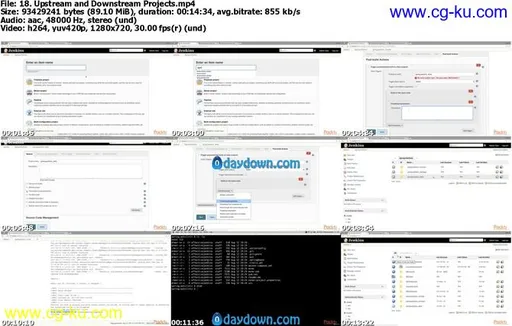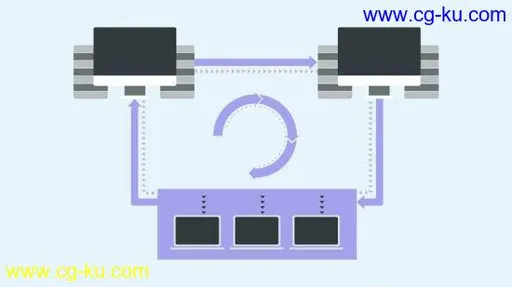Created by Packt Publishing | Video: h264, 1280x720 | Audio: AAC 48KHz 2ch | Duration: 06:22 H/M | Lec: 49 | 2.26 GB | Language: English | Sub: English [Auto-generated]
Set up the stage for a DevOps culture by learning Continuous Integration and automating your Jenkins projects!
What you'll learn
Managing Jenkins: Security, Plugin management and add a build node.
Automated builds: Freestyle project, working with Git, scheduled builds and up/downstream jobs.
Configure and run builds in Jenkins from GitHub.
Build a Continuous Integration/Continuous Deployment pipeline.
Integrate Jenkins with AWS.
Continuous Integration (CI) and Continuous Delivery (CD) concepts.
Jenkins quick start: Jenkins architecture, installation and configuration.
Requirements
A basic understanding of the software development life cycle and Java development is needed, as well as a rudimentary understanding of Jenkins.
Description
In agile development practices, developers need to integrate their work frequently to fix bugs or to create a new feature or functionality. Jenkins is used specifically for continuous integration, helping to enforce the principles of agile development.
Jenkins is one of the most popular and leading Continuous Integration servers on the market today. This popularity is because, it is an open source project and a very flexible tool, which you can easily use it to automate all of the steps of your software delivery process on any platform. It is designed to maintain, secure, communicate, test, build, and improve the software development process. Setting up Jenkins and running build jobs is not enough for a production infrastructure.
This comprehensive 2-in-1 course a modular and highly interactive approach, providing a general introduction and explanatory, hands-on content. You’ll start off with configuring Jenkins effectively to work with Git in building and testing your software. You’ll discover the process of using Jenkins to build, test, and package Java applications. You’ll also learn about the extensible features of Jenkins with automated deployment on a cloud platform.
By the end of the course, you’ll be able to set up the stage for a DevOps culture by learning Continuous Integration, automating your Jenkins projects and getting continuous feedback for your upstream & downstream projects!
Contents and Overview
This training program includes 2 complete courses, carefully chosen to give you the most comprehensive training possible.
The first course, Effective Jenkins: Getting Started with Continuous Integration, covers Continuous Integration, automate your Jenkins projects and get continuous feedback for your upstream & downstream projects. In this first volume, you will understand the key concepts of CI and CD, as well Continuous Deployment. Get started with Jenkins by installing and configuring a Master and Node server. Once this is done, understand the main parts of Jenkins and create different types of Jenkins projects to automate everything that you want. You’ll finish the section by looking to a Java web project and create the necessary steps for build and test it, therefore you can implement it to your real project.
The second course, Hands-On Continuous Integration and Automation with Jenkins, covers building, testing, and packaging applications with Jenkins in this hands-on video course supported by practical real-world examples. This video course delves into the installation of the required software dependencies and libraries and demonstrates the workflow you'll need to follow to perform continuous integration for a sample application. From there, you will learn how to integrate code repositories and build tools in order to build code pipelines to implement both continuous integration and continuous delivery. Finally, you will also learn to automate deployment to a cloud platform such as AWS.
By the end of the course, you’ll be able to set up the stage for a DevOps culture by learning Continuous Integration, automating your Jenkins projects and getting continuous feedback for your upstream & downstream projects!
Who this course is for?
Java developer, software architect, technical project manager, build manager, or QA engineer who are looking forward to build, test, and package applications with Jenkins.


发布日期: 2019-09-28